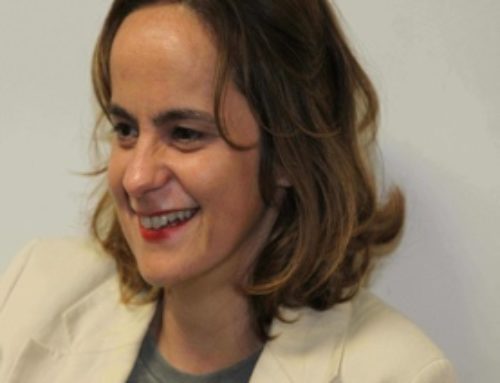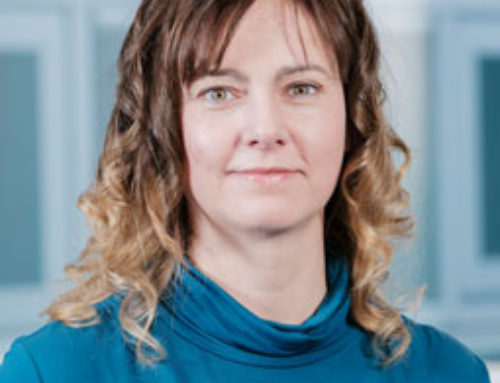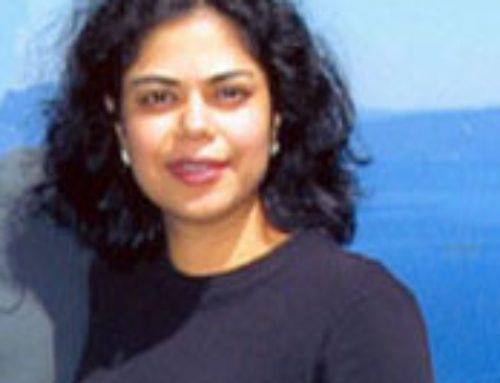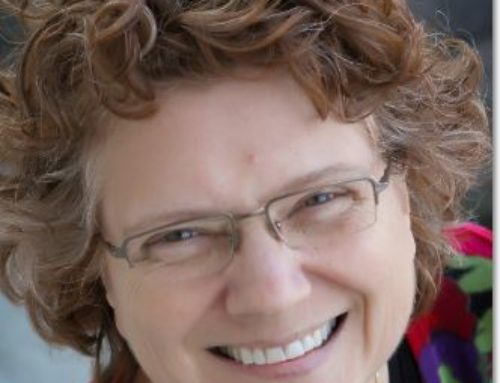HETL Note: Dr. Olga Kovbasyuk, Ph.D., provides an insightful narrative into the nature of dialogue and how it can create the potential for positive change in higher education. Dr. Kovbasyuk examines why dialogue is at the heart of meaning-centered education and why she believes its attributes of mutuality, responsibility, engagement, and acceptance as well as its central tenet of “educating the whole personality” provides a necessary framework for positive educational change. You may submit your own article on the topic or you may submit a “letter to the editor” of less than 500 words (see the Submissions page on this portal for submission requirements).
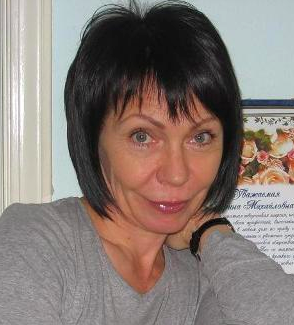 Author’s Bio: Professor Olga Kovbasyuk, Ph.D., is Professor and Associate Dean for International Relations at the Khabarovsk State Academy of Economics and Law in the Russian Federation. She is the founder of the Far East Russia Global Learning Center and a member of the executive committee of the HETL Association. She has been teaching, training, and managing educational services in the fields of education, intercultural communication, and international management for the past 25 years. In 2008, she founded a global learning center in conjunction with the 3 leading universities in Russia and the USA aimed at integrating global learning into the curriculum. Her international experience includes: Fulbright International Exchange of Scholars Program at the California State University, Sacramento, USA (2004-2005), DAAD Academic Research Program, Germany (2009), and has worked in more than 15 countries as a manager of academic exchange programs and as a consultant on managing cultural diversity for business companies (Alliance, Shell, Rostelecom).
She has delivered over 70 presentations and publications in the fields of intercultural education and management. She is a native Russian speaker who also speaks fluent English and German.
Author’s Bio: Professor Olga Kovbasyuk, Ph.D., is Professor and Associate Dean for International Relations at the Khabarovsk State Academy of Economics and Law in the Russian Federation. She is the founder of the Far East Russia Global Learning Center and a member of the executive committee of the HETL Association. She has been teaching, training, and managing educational services in the fields of education, intercultural communication, and international management for the past 25 years. In 2008, she founded a global learning center in conjunction with the 3 leading universities in Russia and the USA aimed at integrating global learning into the curriculum. Her international experience includes: Fulbright International Exchange of Scholars Program at the California State University, Sacramento, USA (2004-2005), DAAD Academic Research Program, Germany (2009), and has worked in more than 15 countries as a manager of academic exchange programs and as a consultant on managing cultural diversity for business companies (Alliance, Shell, Rostelecom).
She has delivered over 70 presentations and publications in the fields of intercultural education and management. She is a native Russian speaker who also speaks fluent English and German.
Patrick Blessinger and Krassie Petrova
~~~~~~~~~~~~~~~~~~~~~~~~~
Dialogue as a Means of Change
Olga Kovbasyuk
Khabarovsk State Academy of Economics and Law, Russian Federation
When Patrick Blessinger offered me the opportunity to submit an opinion article to the HETL Portal, I thought I would write about meaning-centered education, which has been my research interest for a number of years. Then I decided I would also share my experience on global learning, which became a source of inspiration to my students and me since I returned from a Fulbright Fellowship I had in California in 2005.
Last week, a colleague and I were working on the chapter “The Changing Environment of Higher Education” for the book The Strategic Management of Higher Education Institutions, when I realized I tended to emphasize the importance of DIALOGUE in teaching and learning. This reflection served as a turning point for my choice of the topic for this narrative.
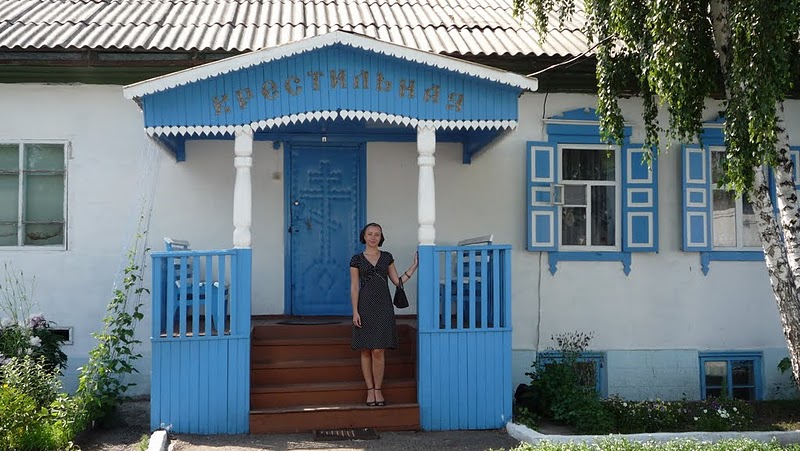
Symbols of Russian culture: orthodox Russian church located in a typical wooden house, birch tree, and girl wearing "babushka"
In fact, dialogue underpins the theory of meaning-centered education, which I advocate as a scholar, as well as the global learning activities that I have been engaged in as a practitioner. Dialogue represents my personal and professional credo in life. My whole self resonates when I anticipate the possibility of a true dialogue occurring in a professional or a personal setting. I consider having a reflective dialogue with my inner world critical to my professional and personal self-development. Dialogue would rarely occur within a traditional oppressive educational system, which I experienced when I was growing up, but dialogue repeatedly occurs in my classroom now… and I can see the positive change it provides.
With my reflections on dialogue as a means of change, I hope to contribute to the current debate about the changing environment of education in general and higher education in particular. Very often, dialogue is perceived and interpreted as the formal exchange of messages and/or ideas, but such exchange can hardly be called a dialogue. The world could have escaped many troubles had people learned the art of true dialogue. In education, we often have a monologue with each other and with our students because when we exchange ideas (although on the surface it could look like we communicate dialogically). My teacher, the esteemed professor Lydia Kulikova, would name this kind of communication and interaction as one that goes “along the formal counter of a human being” (Kulikova, 2005, p. 74) thus failing to foster meaningful teaching and learning. She taught me “to hear the strings of the human heart” (Kulikova, ibid, p. 30) when in a classroom.
According to M. Buber and M. Bakhtin, dialogue entails such quality relationships between interlocutors as mutuality, responsibility, engagement and acceptance. The existential interpretation of dialogue holds that it is only in true dialogic relationships that an individual is able to unfold and experience self as personality. Personality is different from individuality. While individuality can be described by a unique combination of individual characteristics and attributes, personality is defined by the human capacity to become the subject of one’s life – the one who is able to take full responsibility for one’s own actions in life.
Personality is characterized by her/his inner world, which cannot be understood by another personality unless both are engaged in a true dialogue with each other. Consequently, one is able to cognize her/his own self when engaged in a dialogue with someone different from her/himself. That is why Freire called dialogue “an existential necessity” and Bakhtin referred to dialogic interaction with self as the major factor of self-creation: “Without dialogue there is no communication, and without communication there can be no true education” (Freire, 2004, p.93).
Traditional school is knowledge-oriented and places an emphasis on the formation and upbringing of students to meet the expectations of society, rather than supporting the individual’s self or educating the whole personality. Knowledge can be tested but the inner world is personality’s sovereign space that cannot be measured by numbers and tests. Progress in students’ learning entails understanding and therefore is difficult to measured. An understanding is a transfer of meanings, but not a transfer of knowledge. ”I can’t teach you, but I can only hope you understand me. Understanding cannot be predicted, but may occur as a result of transfer and re-construction of meanings.” (Leontiev, 2008, p.233)
As educators, we should consider that, like every transformation in general, personal transformation entails not linear progress but some points of regression and even stagnation as we progress. In fact, students should learn to welcome confusion and chaos as a transitory state between their prior convictions and new personal perspectives. It can also be viewed as a reversible process of quantitative and qualitative transformations of psychological attributes and states, which add to one another in timely reformations.
A true dialogue is open-ended; interlocutors may be unaware of conclusions they reach at the end. In the process of a truly dialogic interaction, it requires courage from those engaged in a dialogue to admit the possibility of change and re-construction of one’s views and perspectives. Consequently, the possible change and transformation within self may serve as a criterion of a truly dialogic interaction. Regrettably, we often tend to oppose a true dialogue, because we are often reluctant to change. It is easier to remain rigid than to admit the possibility of change. In such a way, we block our capacity for exploring new possibilities and ideas.
In education, dialogue entails partnerships between students and teachers. “Through dialogue, the teacher-of-the-students, and the students-of-the-teacher cease to exist and a new term emerges: teacher-student with students-teachers” (Freire, Ibid, p.80). The dialogic position of students and teachers constitutes their independence, freedom, and responsibility. True dialogue requires developing “efforts towards others” (Bakhtin), and consequently facilitates meaningful interaction between people and cultures.
As educators, we face some controversies about how to educate generations in order to better prepare them for dealing with the complexities and conflicts arising from interconnectedness and interdependence between cultures in the contemporary world. Conflicts and xenophobia in the world arena suggest the inability of people to construct dialogic interaction, but in contrast show their inclination to negate the existence of different views and opinions. The challenge of being tolerant is the ability to recognize and accept different realities. Intolerance comes when people consider only one truth, and if someone adheres to a different truth, she/he has to be “taught”.
I believe that the global learning, incorporated in academic studies, facilitates recognition of different cultural perspectives. As a Stanford University student wrote in his evaluation essay: “One of the outcomes for me is a more critical understanding of Russian youth (and female) culture. The videoconferences allowed me to see and recognize the perspective of a group of students in Russia that I would not have been able to see otherwise. I was specifically struck by the students’ conceptions of happiness and their focus and perceptions of gender roles which were so different from my conception”.
My experience indicates that meaning-centered education encourages learners to actively seek, express and negotiate meanings in dialogues. Such dialogues have the potential of fostering value-oriented relationships and appreciation for the diversity of the world, as well as the potential of developing students’ critical self-reflection and collaborative skills. What is unique and resourceful about meaning-centered education and why it can provide the common basis for global learning, is that it facilitates people’s capability for constant self-developmental growth, which is innate to being a human. It is holistic because it embraces all aspects of personal growth.
Regrettably, much of higher education today is still more directed towards the training of a professional who is capable of performing certain functions and responsibilities, rather than nurturing a personality who makes the maximum effort to become a full human being. I hold that education should support developing the personality rather than to just help her/him acquire professional attributes; striving to become involves striving for intelligence, self/world-improvement, and professional competency.
In reality, what can we do to introduce dialogue as a means of change in teaching-learning environments? There might be a variety of ways for each of us to put it in action. I hope to hear different perspectives on the issue from colleagues around the world.
I would point out just a few to summarize my own perspective:
– Priority of personal meanings over “educational requirements”
– Priority of the evolution of increasingly better questions, as in Bloom’s Taxonomy
– Priority of shifting through a variety of micro and macro perspectives
– Priority of thinking about thinking (metacognition)
– Priority of thinking about the processes of knowledge construction
What would you add to the list?
Olga Kovbasyuk
References
Bakhtin, M. (1984). Problems of Dostoevsky’s Poetics. (Caryl Emerson, Trans.) Minneapolis, MN: University of Minnesota Press. (Original work published in 1929).
Freire, P. (2004). Pedagogy of the Oppressed. New York: Continuum.
Buber, M. (1995). (Gurevich, Trans.) Two Modes of Belief. M: Respublika.
Kulikova, L. (2005). Personality Self-Development: Psychological and Pedagogical Foundations. Kh: HGPU
Leontiev, D. (2008). Psychology of Meaning. M: Smysl.
Endnotes
Professor Lydia Kulikova taught Philosophy of Education in the Far East State University of Humanities in Khabarovsk, Russia, for 40 years.
Suggested Citation:
Kovbasyuk, O. (2011). Dialogue as a Means of Change. The International HETL Review. Volume 1, Article 2, https://www.hetl.org/opinion-articles/dialogue-as-a-means-of-change/
Copyright © [2011] Olga Kovbasyuk
The author(s) assert their right to be named as the sole author(s) of this article and the right to be granted copyright privileges related to the article without infringing on any third-party rights including copyright. The author(s) retain their intellectual property rights related to the article. The author(s) assign to HETL Portal and to educational non-profit institutions a non-exclusive license to use this article for personal use and in courses of instruction provided that the article is used in full and this copyright statement is reproduced. The author(s) also grant a non-exclusive license to HETL Portal to publish this article in full on the World Wide Web (prime sites and mirrors) and in electronic and/or printed form within the HETL Review. Any other usage is prohibited without the express permission of the author(s). All images are used with permission and/or under a copyright license.
Disclaimer
Opinions expressed in this article are those of the author, and as such do not necessarily represent the position(s) of other professionals or any institutions.

